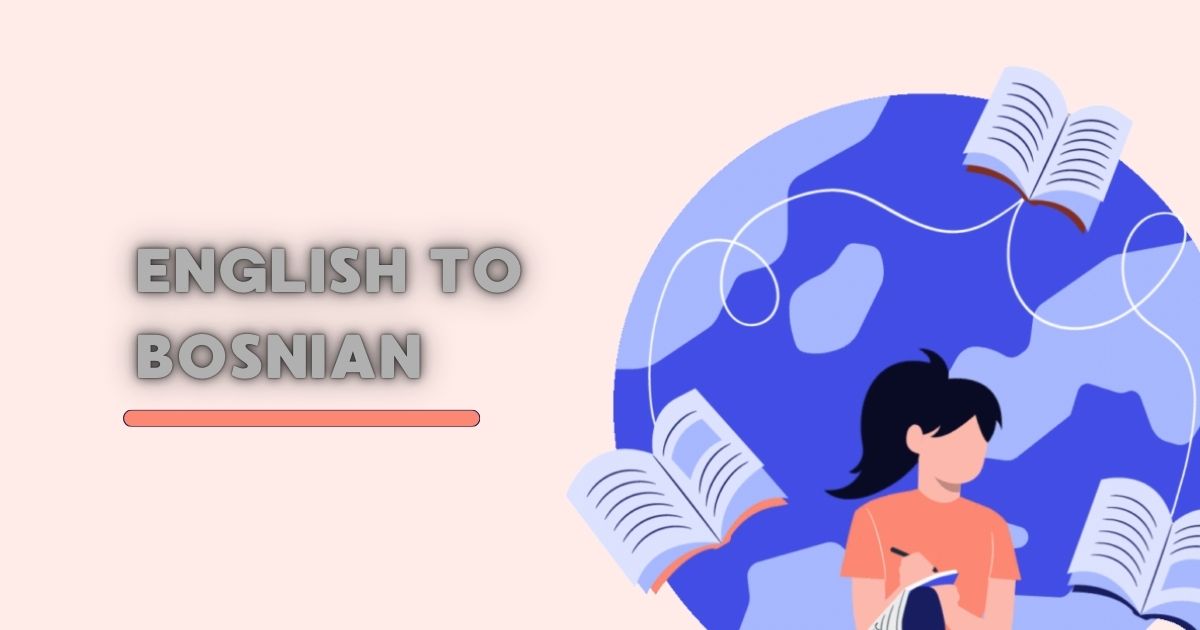In today’s globalized world, translation is more than just converting words—it’s about connecting cultures. Translating English to Bosnian is especially important for the Balkan region, where Bosnian is widely spoken. Whether for travel, business, or communication, accurate translation bridges the gap between English speakers and native Bosnian speakers.
Understanding the Bosnian Language
Bosnian is one of the standard varieties of the Serbo-Croatian language and is spoken mainly in Bosnia and Herzegovina. It uses both Latin and Cyrillic alphabets, though the Latin script is more common. Bosnian is closely related to Serbian and Croatian, with subtle differences in vocabulary, pronunciation, and expressions.
Key Differences Between English and Bosnian
English and Bosnian differ in grammar structure, sentence formation, and even how emotions or formalities are expressed. English follows a Subject-Verb-Object structure, while Bosnian is more flexible due to its case system. Also, Bosnian has formal and informal versions of “you,” something English doesn’t differentiate.
Basic English Words and Their Bosnian Equivalents
Here are some common translations:
Hello – Zdravo
Thank you – Hvala
Please – Molim
Yes – Da
No – Ne
Goodbye – Doviđenja
How are you? – Kako si?
Learning these basics is essential for everyday conversations and first impressions.
Common English Phrases Translated to Bosnian
To build fluency, learning full phrases is more helpful than individual words. Here are a few examples:
What is your name? – Kako se zoveš?
I don’t understand – Ne razumijem
Where is the bathroom? – Gdje je toalet?
I need help – Trebam pomoć
How much does it cost? – Koliko košta?
These are particularly useful for travelers or beginners in the language.
Grammar Rules to Keep in Mind
Bosnian grammar includes seven cases, which can be challenging for English speakers. Nouns change form depending on their function in the sentence (subject, object, etc.). Gender is also important—nouns can be masculine, feminine, or neuter, and adjectives must agree with them.
Pronunciation Tips for English Speakers
Bosnian pronunciation is phonetic, meaning words are pronounced as they’re written. Every letter has one sound, unlike English. For example, the letter “j” is pronounced like “y” in “yes,” and “č” is pronounced like “ch” in “chocolate.” Mastering these sounds will help avoid misunderstandings.
Formal vs. Informal Speech in Bosnian
In Bosnian, “ti” is informal, and “Vi” is formal. Use “Vi” with strangers, elders, or in professional settings. For instance:
How are you? (informal) – Kako si?
How are you? (formal) – Kako ste?
Using the wrong form can seem disrespectful, so it’s important to learn when to use which.
Tools for English to Bosnian Translation
There are many online tools and apps to help with translation:
Google Translate – Good for simple sentences and individual words.
DeepL Translator – More accurate for full sentences and context.
Bosnian Dictionary Apps – Helpful for offline use and learning.
Language Learning Platforms – Duolingo and Memrise offer Bosnian lessons.
These tools are great for practice but shouldn’t replace human translation in professional contexts.
Using AI for Translation
AI tools like ChatGPT can help explain grammar rules, generate translations with context, and even correct your Bosnian. However, always double-check AI translations if accuracy is critical, especially in legal or medical documents.
Challenges When Translating English to Bosnian
The biggest challenges include handling idioms, cultural expressions, and grammar rules. For example, English idioms like “break a leg” don’t translate literally. Instead, you’d need the Bosnian equivalent or a neutral translation that makes sense culturally.
Professional Translation vs. DIY
For documents like birth certificates, legal forms, or business agreements, always use a certified translator. Machine or casual translation may miss critical nuances that could lead to errors or legal issues.
How to Practice and Improve
Practice speaking with native Bosnian speakers online, watch Bosnian movies with English subtitles, and read Bosnian articles. Consistency is key—just 15 minutes a day can help build fluency over time.
The Importance of Cultural Context
Knowing the language is one thing—understanding the culture is another. Respecting traditions, greetings, humor, and politeness goes a long way in Bosnian culture. A translated sentence may be grammatically correct but still feel off without cultural context.
When to Seek a Human Translator
If you’re dealing with official matters, professional emails, or important publications, hire a human translator. They understand tone, cultural relevance, and linguistic flow better than any software.
Future of English to Bosnian Translation
With AI advancing, English to Bosnian translation is becoming faster and more accessible. However, human expertise will always be needed for precision, emotional nuance, and cultural sensitivity. The future likely involves a blend of both.
Conclusion
Translating English to Bosnian opens doors to culture, connection, and opportunity. Whether you’re learning the language, traveling to the Balkans, or needing accurate documents, understanding the basics can make a huge difference. Use tools wisely, keep practicing, and don’t shy away from asking for help when needed.
FAQs
Is Bosnian hard to learn for English speakers?
Yes, it can be challenging due to grammar and cases, but with practice, it’s achievable.
Can I rely solely on Google Translate for Bosnian?
No. It’s fine for casual use, but not for official or sensitive content.
How long does it take to become fluent in Bosnian?
With consistent effort, you can reach conversational fluency in about 12–18 months.
What’s the difference between Bosnian and Serbian or Croatian?
They are very similar but have differences in vocabulary, pronunciation, and cultural context.
Are there Bosnian language certificates like TOEFL for English?
Yes, institutions in Bosnia offer certification for language proficiency levels.















